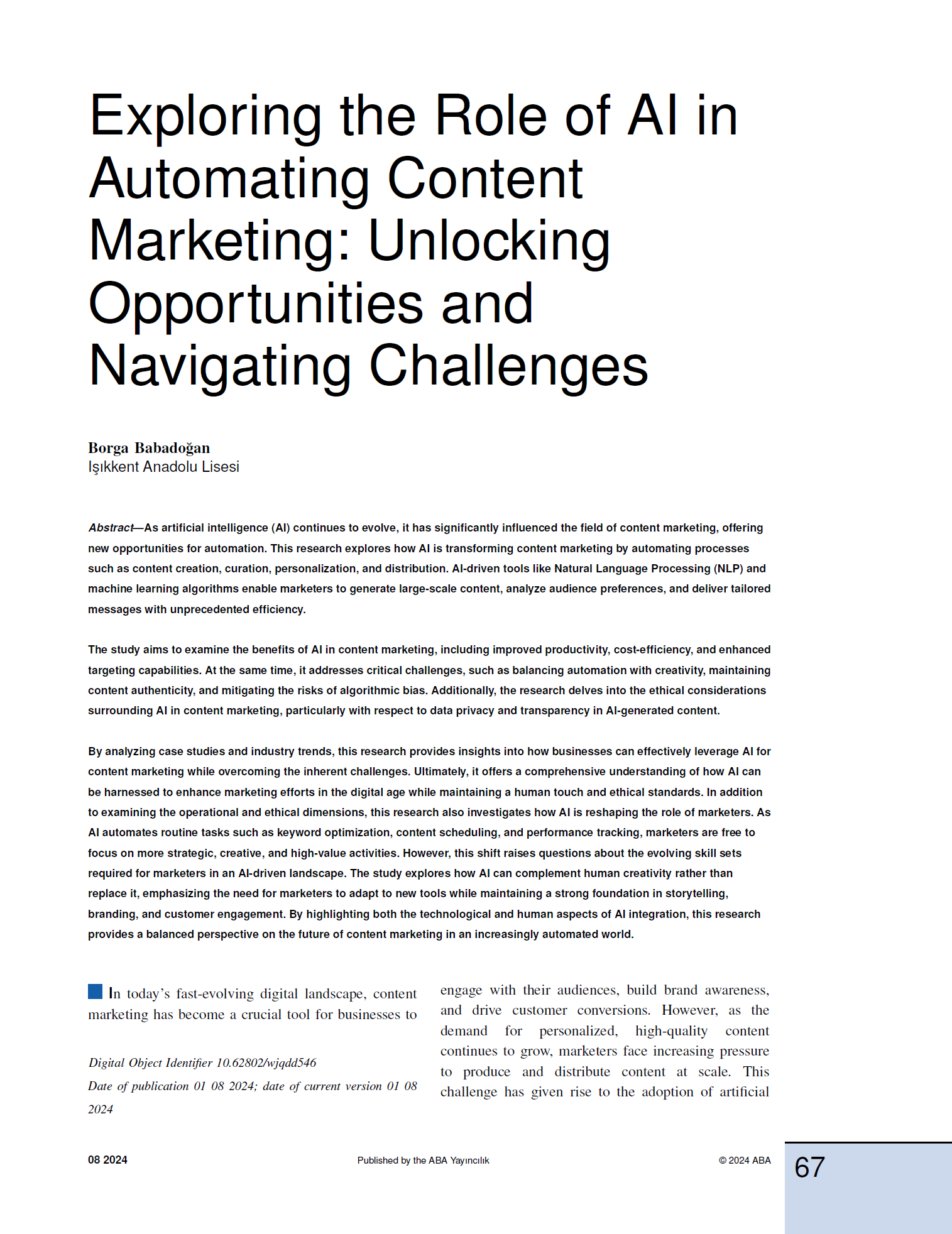Exploring the Role of AI in Automating Content Marketing: Unlocking Opportunities and Navigating Challenges
DOI:
https://doi.org/10.62802/gkj6f352Keywords:
Artificial Intelligence, Automation in Marketing, Targeted Content Distribution, AI-Generated Content Transparency, Natural Language Processing, Future of Marketing AutomationAbstract
As artificial intelligence (AI) continues to evolve, it has significantly influenced the field of content marketing, offering new opportunities for automation. This research explores how AI is transforming content marketing by automating processes such as content creation, curation, personalization, and distribution. AI-driven tools like Natural Language Processing (NLP) and machine learning algorithms enable marketers to generate large-scale content, analyze audience preferences, and deliver tailored messages with unprecedented efficiency.
The study aims to examine the benefits of AI in content marketing, including improved productivity, cost-efficiency, and enhanced targeting capabilities. At the same time, it addresses critical challenges, such as balancing automation with creativity, maintaining content authenticity, and mitigating the risks of algorithmic bias. Additionally, the research delves into the ethical considerations surrounding AI in content marketing, particularly with respect to data privacy and transparency in AI-generated content.
By analyzing case studies and industry trends, this research provides insights into how businesses can effectively leverage AI for content marketing while overcoming the inherent challenges. Ultimately, it offers a comprehensive understanding of how AI can be harnessed to enhance marketing efforts in the digital age while maintaining a human touch and ethical standards. In addition to examining the operational and ethical dimensions, this research also investigates how AI is reshaping the role of marketers. As AI automates routine tasks such as keyword optimization, content scheduling, and performance tracking, marketers are free to focus on more strategic, creative, and high-value activities. However, this shift raises questions about the evolving skill sets required for marketers in an AI-driven landscape. The study explores how AI can complement human creativity rather than replace it, emphasizing the need for marketers to adapt to new tools while maintaining a strong foundation in storytelling, branding, and customer engagement. By highlighting both the technological and human aspects of AI integration, this research provides a balanced perspective on the future of content marketing in an increasingly automated world.
References
Jelena, B., Aleksandar J., Aleksandar, V., Vladimir, Ð., and Mirjana Cviji´c, ˇC. (2023). Empowering content creation with generative AI in the metaverse. 554-559. https://www.iim.ftn.uns.ac.rs/is23/proceedings/papers/VP1.1/VP1.1-14_07941.pdf
Gao, B. (2023). Artificial intelligence in advertising: advancements, challenges, and ethical considerations in targeting, personalization, content creation, and ad optimization. Sage Open, 13(4). https://doi.org/10.1177/21582440231210759
Sun, H., Zafar, M., & Hasan, N. (2022). Employing natural language processing as artificial intelligence for analyzing consumer opinion toward advertisement. Frontiers in Psychology, 13. https://doi.org/10.3389/fpsyg.2022.856663









